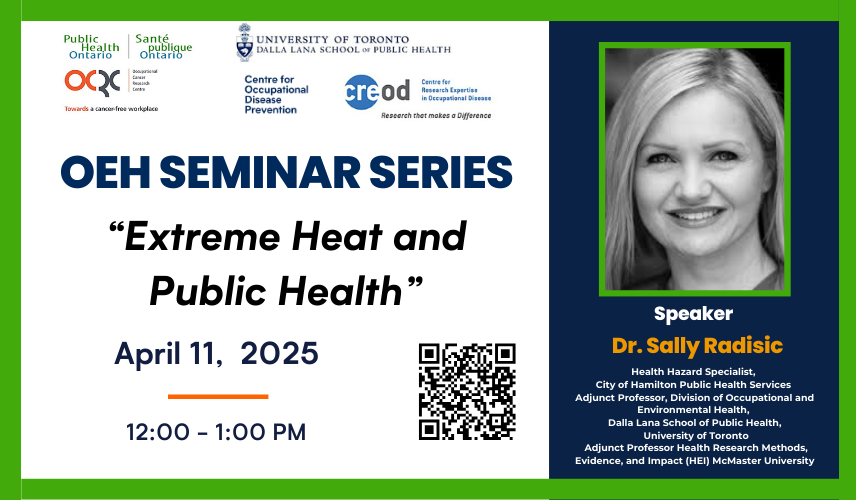- Location
- Online via Zoom, details will be sent to registered attendees.
- Series/Type
- Alumni Event, DLSPH Event, Faculty/Staff Event, Student Event
- Format
- Online
- Dates
- April 11, 2025 from 12:00pm to 1:00pm
Links
As both the frequency and severity of extreme heat events (EHEs) increase, public health authorities recognize the importance of cooling access by heat-vulnerable populations to prevent heat-related morbidity and mortality. Although current public health heat response programs are intended to increase availability of cooling, they may not increase access to cooling. Public health authorities understand the difference between availability and accessibility of public health services and the need for interventions that consider both to protect population health. We aimed to identify barriers and facilitators to cooling access during EHEs and support targeted public health heat initiatives.
Speaker: Dr. Sally Radisic
Sally Radisic is a Health Hazard Specialist with 25 years of experience working in public health, leading environmental health projects, including the Heat Awareness and Outreach Initiative. She holds faculty positions in the Division of Occupational and Environmental Health at the University of Toronto’s Dalla Lana School of Public Health and in the Department of Health Research Methods, Evidence, and Impact (HEI) at McMaster University. Dr. Radisic is dedicated to Evidence-Informed Decision Making (EIDM) and population health strategies in environmental public health. She has collaborated with diverse stakeholders, including government, industry, NGOs, community members, and academic institutions. As an expert risk communicator, Dr. Radisic is committed to raising community awareness and engaging local populations on critical environmental health issues.
